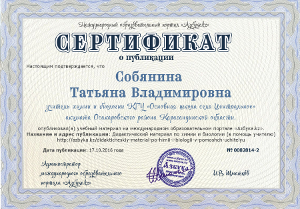Психологические механизмы защиты
| Kamieva Zh. A., Master’s student of Turan-Astana University, Nursultan, Kazakhstan Scientific supervisor: G. Baubekova, Ph. D., Professor of Turan-Astana University, Nursultan, Kazakhstan |

In recent decades, the problem of personality has rightfully occupied a central place in domestic and foreign psychology. Scientific interest in its study is based on the versatility of the phenomenology of personality, the interdisciplinary status of the problem. However, despite the appearance of a significant number of works aimed at studying the patterns of personality development, the problem of the development of its psychological mechanisms optimizing interaction with the social environment remains outside the field of view of domestic scientists.
Meanwhile, the processes currently taking place in the country give special relevance to the development of this issue. The situation of personality development in modern Russian society is characterized by extreme instability associated with the socio-economic and political changes that have taken place. The breaking of habitual, established stereotypes of life activity over the years and the increase in the flow of aggressively saturated information reduce the resistance of the individual to destructive influences.
The changes affected not only general but also higher education. Attempts are being made to develop and introduce new ideas and technologies of teaching and upbringing based on inner freedom, creativity, and the polysubjectivity of the teacher-student relationship. They are based on the deepening of the humanistic content, the creation of thoughtful, optimal conditions for effective pedagogical interaction, assistance aimed at forming a person’s motivation to work, to himself, to other people, the world around him. The subject of special concern is the expansion of the psychological space, which has powerful developing potential.
The analysis of psychological, sociological, and medical literature shows that the transition to the university form of education is a complex adaptation process, the violation of which affects the psychological comfort and neuropsychic health of students, their development, and learning effectiveness (V. I. Krutov, N. A. Aghajanyan, S. M. Madorskaya, P. I. Pidkasisty, Yu. A. Samarin, S. I. Samygin, V. A. Yakunin, etc.). The comparison of these data with the results of recent studies allows us to conclude that the solution to the problems of development and socio-psychological adaptation of students, which are traditional for the university, is currently complicated by the deterioration of their living conditions. This gives grounds to attribute the problem of psychological protection of students as one of the most urgent problems of higher education.
There is a need for scientific reflection on the approaches used in working with students, new forms of educational activity that are adequate to the requirements of the modern socio-political and socio-economic situation in Russia.
The theoretical analysis of the literature devoted to the problem of psychological protection has shown that modern Russian science has accumulated rich theoretical and empirical material illustrating the multidimensionality and inconsistency of this phenomenon (F. V. Bassin, F. E. Vasilyuk, R. M. Granovskaya, L. R. Grebennikov, B. V. Zeigarnik, A. A. Nalchajyan, A. M. Shtypel). At the same time, the question remains unclear as to what mechanisms of the individual allow her to constructively resist the aggressive environment, protecting herself, her integrity, her inner freedom, and what are the ways to optimize the self-defense efforts the individual.
In domestic and foreign psychological theory, the fundamental prerequisites for solving the problem have been created. These include the main provisions of the concept of the personal way of human existence formulated in foreign humanistic psychology. In line with this concept, the well-being of the individual is associated with its ability to authentic existence and continuous development (A. Maslow, K. Rogers, V. Frankl, F. Perls, V. Shuts, etc.). The search for ways to optimize the self-protective efforts of the individual is associated with the construction of a developing environment that most contributes to the realization of personal potential.
Among the productive ones are also the ideas developed in the personalization concept of A. V. Petrovsky and the «semantic» concept of B. S. Bratus, as well as the principle of analyzing a person through the way of her life, through the «themes» and «techniques» of her being (K. A. Abulkhanova-Slavskaya, L. I. Antsyferova).
The concept of psychological protection has been and remains one of the most important contributions of psychoanalysis to the theory of personality and to the theory of psychological adaptation. The analysis of literary sources concerning the formation of the problems of psychological protection allows us to identify several reasons for the complexity and inconsistency of determining the status of this phenomenon as an object of scientific research.
The category of psychological protection in modern psychology belongs to the category of long-established and firmly established. It has long been included in all psychological dictionaries and reference books as a generally accepted concept in the field of personality psychology. In a broad sense, the term «Psychological protection» is used to refer to any behavior that eliminates psychological discomfort" — one of the most general definitions of this phenomenon. Behind this and similar definitions is the idea of the individual psychological nature of the phenomenon of psychological defense and its mechanisms, born in the framework of psychoanalysis Z. Freud
Among the factors of personal development, learning is one of the most significant and determining, since it is the only way to get an education. It is in training that the origin and development of the main mental and personal neoplasms take place, the acquisition of experience in the implementation of educational, cognitive, research, and professional activities. A necessary condition for the successful activity of a student is the development of new features of studying at a university, eliminating the feeling of internal discomfort and blocking the possibility of conflict with the environment. During the initial courses, the student team develops, the skills and abilities of rational organization of mental activity are formed, the vocation to the chosen profession is realized, the optimal mode of work, leisure, and everyday life are developed, a system of work on self-education and self-education of professionally significant personality qualities is established. The abrupt breaking of the long-standing habitual working stereotype sometimes leads to nervous breakdowns and stress reactions. For this reason, the period of adaptation associated with the breaking of previous stereotypes may at first cause relatively low academic performance and communication difficulties. Knowledge of the individual characteristics of the student, based on which a system is being built to include him in new activities and a new circle of communication, makes it possible to avoid maladaptation syndrome, make the adaptation process smooth and psychologically comfortable.
The tasks of personality development and the problems facing students determine the need to provide them with psychological support to psychologically ensure the free and harmonious development of personality in modern society at all stages of its formation and self-realization; prevent the development of negative trends in human psychology, overcome the difficulties of personal growth, correct deviant behavior, eliminate conflict situations in relationships.
- 9812 просмотров


.webp)






.webp)
